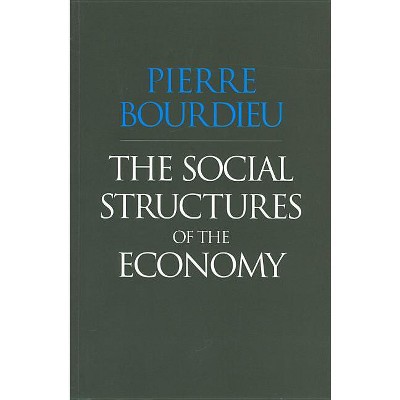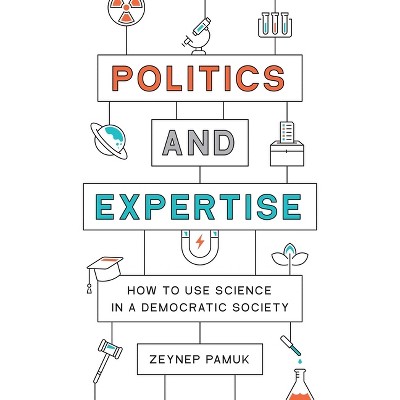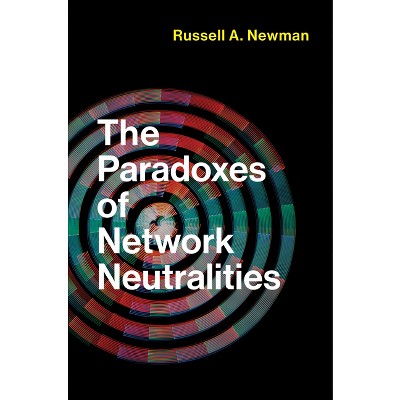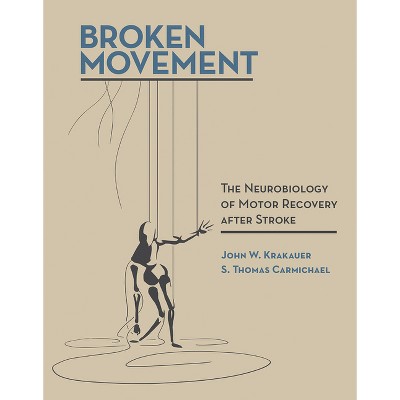Sponsored

Majority Judgment - by Michel Balinski & Rida Laraki (Paperback)
$50.00
In Stock
Eligible for registries and wish lists
Sponsored
About this item
Highlights
- An account of a new theory and method of voting, judging and ranking, majority judgment, shown to be superior to all other known methods.
- About the Author: Michel Balinski was Directeur de Recherche de classe exceptionnelle (Emeritus), C.N.R.S. and the Laboratoire d'Econométrie, Département d'Économie, École Polytechnique, Palaiseau, France.
- 432 Pages
- Political Science, Political Process
Description
About the Book
An account of a new theory and method of voting, judging and ranking, majority judgment, shown to be superior to all other known methods.Book Synopsis
An account of a new theory and method of voting, judging and ranking, majority judgment, shown to be superior to all other known methods. In Majority Judgment, Michel Balinski and Rida Laraki argue that the traditional theory of social choice offers no acceptable solution to the problems of how to elect, to judge, or to rank. They find that the traditional model--transforming the "preference lists" of individuals into a "preference list" of society--is fundamentally flawed in both theory and practice. Balinski and Laraki propose a more realistic model. It leads to an entirely new theory and method--majority judgment--proven superior to all known methods. It is at once meaningful, resists strategic manipulation, elicits honesty, and is not subject to the classical paradoxes encountered in practice, notably Condorcet's and Arrow's. They offer theoretical, practical, and experimental evidence--from national elections to figure skating competitions--to support their arguments. Drawing on insights from wine, sports, music, and other competitions, Balinski and Laraki argue that the question should not be how to transform many individual rankings into a single collective ranking, but rather, after defining a common language of grades to measure merit, how to transform the many individual evaluations of each competitor into a single collective evaluation of all competitors. The crux of the matter is a new model in which the traditional paradigm--to compare--is replaced by a new paradigm--to evaluate.Review Quotes
""Majority Judgment" is a work of astonishing originality, with remarkable depth and range. The authors rethink in fundamental ways the theory of social choice, recasting it on the basis of evaluations rather than preferences. It will appeal to mathematicians, philosophers, and economists interested in the abstract theory of social choice; political scientists and election reformers looking for better methods of voting; psychologists, educators, and measurement theorists; and officials of organizations (such as the Olympics) who want to improve any competition evaluated by subjective judgments rather than objective measures."--Jack Nagel, Steven F. Goldstone Endowed Term Professor of Political Science, University of Pennsylvania
"Balinski and Laraki propose an intriguing new voting method for political elections: have voters 'grade' the candidates and elect the one having the highest median grade. The method will be controversial but deserves careful consideration."--Eric S. Maskin, A. O. Hirschman Professor of Social Science, Institute for Advanced Study; Nobel laureate in Economics (2007)
"Finding a way to consolidate the different views of many individuals into a single outcome is a fundamental problem common to areas as diverse as voting for president or judging skaters. When the individual views are expressed as rankings the Arrow impossibility theorem shows that any method must always lack many desirable properties. In contrast, in this revolutionary book, Balinski and Laraki show that when the individual views are expressed as grades, not rankings, simple and practical methods do exist, and they describe them."--Ralph E. Gomory, New York University; President Emeritus, Alfred P. Sloan Foundation; former Senior Vice President for Science and Technology, IBM; National Medal of Science laureate
"In this path-breaking book, Balinski and Laraki make the case for a fundamentally new approach to voting, in which voters evaluate candidates in terms of a common language rather than simply ranking them. This is a highly original work that challenges traditional social choice theory and has important implications for the design of real-world electoral systems." --H. Peyton Young, James Meade Professor of Economics, University of Oxford
"It is only rarely that a book breaks major new ground in a field, and this is one of those books. I am confident that it will be regarded as a classic - one that will be widely read for decades to come. I also expect that it will help open up an entirely new research agenda in social choice theory and practice."--John A. Weymark, Professor of Economics, Vanderbilt University; former President, Society for Social Choice and Welfare
"Michel Balinski has done it again! He has produced--this time with Rida Laraki--a beautiful, comprehensive, conceptually deep, and utterly sound treatise on the mechanics of democracy. By no means an abstruse, ivory-tower exercise in pure math, the work is supported by a plethora of in-depth empirical analyses taken from real life. Most important, the book introduces a vital new idea that promises to revolutionize democratic decision making: 'judging' rather than voting. Enjoy--while learning."--Robert Aumann, Professor Emeritus of Mathematics, Center for Rationality, The Hebrew University of Jerusalem; Nobel laureate in Economics (2005)
"The authors have proposed a very interesting voting method to remedy the well-known defects in standard methods, such as plurality voting. It requires the voters to express their preferences in a simple and easily comprehensible way, and the authors supply evidence that the candidate chosen by their methods is a reasonable selection. This work may well lead to a useful transformation in election practice."--Kenneth J. Arrow, Joan Kenney Professor of Economics and Professor of Operations Research, Emeritus, Stanford University; Nobel laureate in Economics (1972)
"This could be the most important work on the problem of collective choice since 1951, or even since 1785. It is written with wit and precision, and, fittingly for work done in France, it shows that wine judges have come closest to finding practical solutions to the problem."--Iain McLean, Professor of Politics, University of Oxford
"This is an important book destined to provoke considerable controversy. Inspired by a deep understanding of practice - ranking students, skaters, wines - it goes beyond impossibility theorems to constructively challenge the dominant approach to the design of voting procedures with a new theory, supported by extensive experimental evidence."--Martin Shubik, Seymour Knox Professor Emeritus of Mathematical Institutional Economics, Yale University
"
About the Author
Michel Balinski was Directeur de Recherche de classe exceptionnelle (Emeritus), C.N.R.S. and the Laboratoire d'Econométrie, Département d'Économie, École Polytechnique, Palaiseau, France. Rida Laraki is Chargé de Recherche de première classe, C.N.R.S., Laboratoire d'Econométrie, Professeur, Département d'Économie, École Polytechnique, Palaiseau, France, and Chercheur Associé, Équipe Combinatoire et Optimisation, Université Pierre et Marie Curie, Paris, France.Dimensions (Overall): 9.0 Inches (H) x 6.0 Inches (W) x .88 Inches (D)
Weight: 1.27 Pounds
Suggested Age: 22 Years and Up
Number of Pages: 432
Genre: Political Science
Sub-Genre: Political Process
Publisher: MIT Press
Format: Paperback
Author: Michel Balinski & Rida Laraki
Language: English
Street Date: June 7, 2022
TCIN: 86861934
UPC: 9780262545716
Item Number (DPCI): 247-08-4011
Origin: Made in the USA or Imported
If the item details aren’t accurate or complete, we want to know about it.
Shipping details
Estimated ship dimensions: 0.88 inches length x 6 inches width x 9 inches height
Estimated ship weight: 1.27 pounds
We regret that this item cannot be shipped to PO Boxes.
This item cannot be shipped to the following locations: American Samoa (see also separate entry under AS), Guam (see also separate entry under GU), Northern Mariana Islands, Puerto Rico (see also separate entry under PR), United States Minor Outlying Islands, Virgin Islands, U.S., APO/FPO
Return details
This item can be returned to any Target store or Target.com.
This item must be returned within 90 days of the date it was purchased in store, shipped, delivered by a Shipt shopper, or made ready for pickup.
See the return policy for complete information.

















